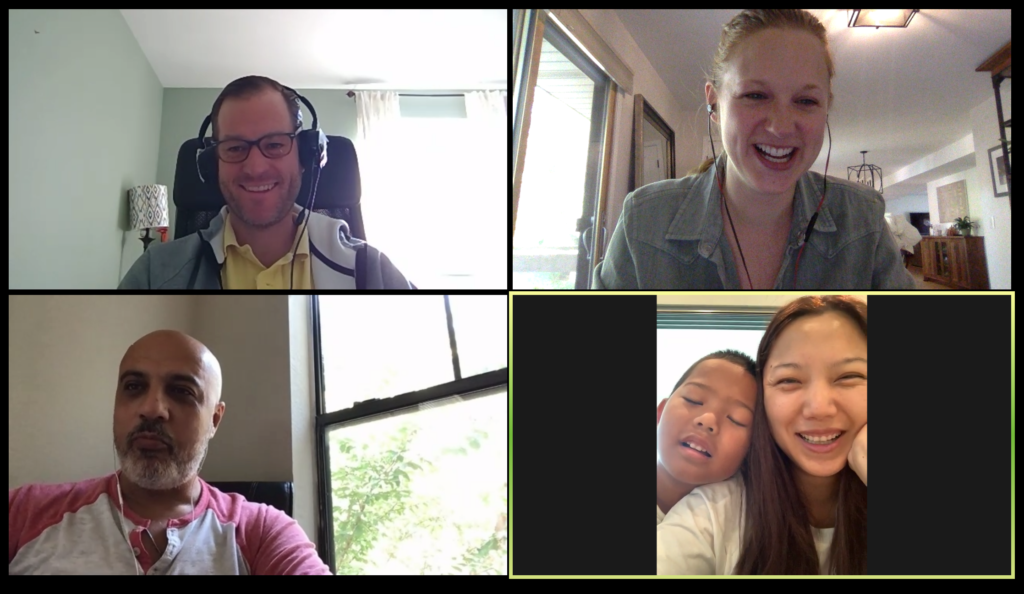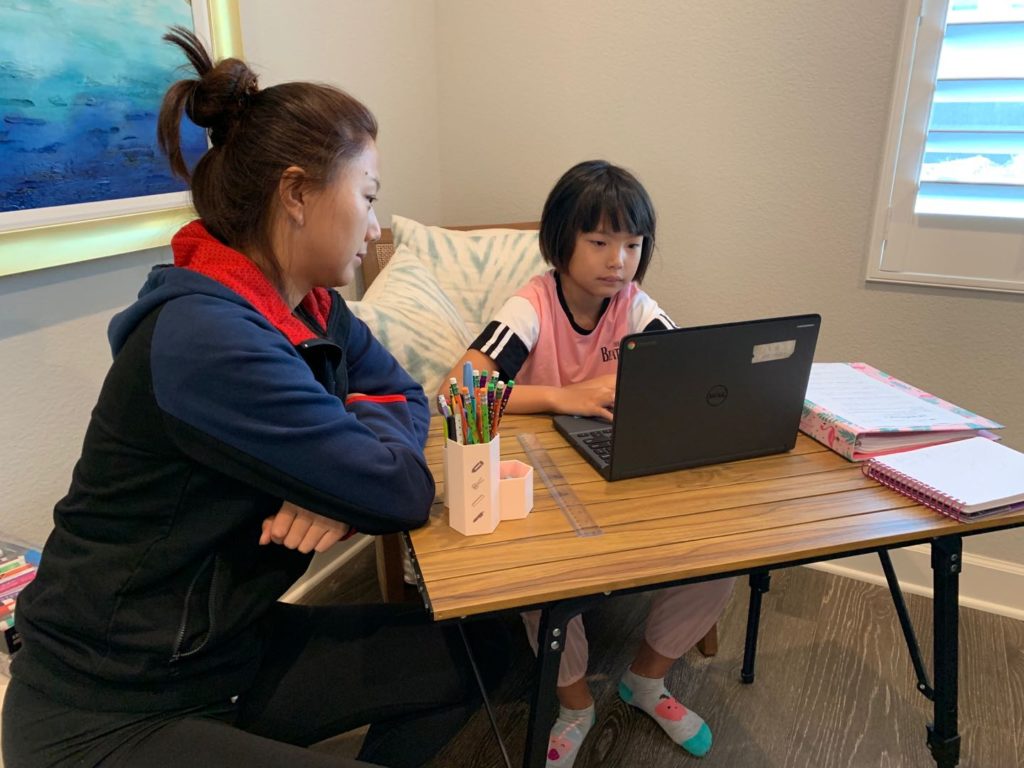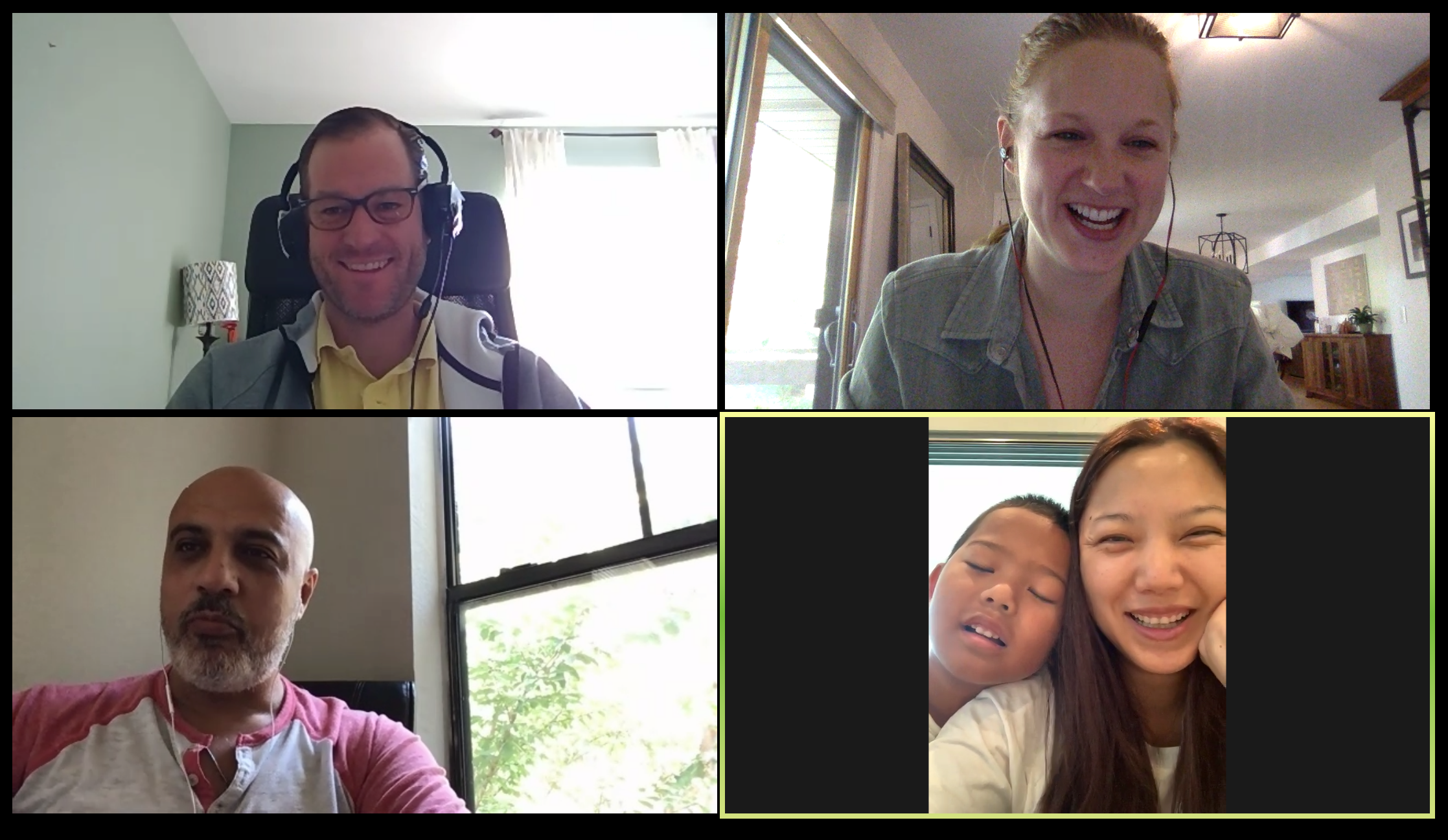Politics and the Pandemic: A Conversation With East/West’s CEO Alina Xiang
You’re in Irvine, CA with your family working remote. What has this experience been like for you?

Life is slowly returning to normal. For example, we started to swim again. We haven’t been to the pool for several months. And the other day, we took the kids to the beach to play. I think it’s really important to have kids get together outside for play dates.
Remote work is okay for me. The biggest challenge is how heavily this crisis has impacted the tourism industry. I have a lot of ideas for the future and different ways to serve the industry. But for now, all we can do is wait for travel bans to be lifted and wait for the industry to recover. And that makes you feel powerless.
What would you say to those who are questioning their investment in the China market?
I would say:
- Keep your investment in China but be aware of what’s going on politically
- Focus on B2C promotions to inspire Chinese travelers who think independently
- Prioritize India (*Particularly for U.S. destinations navigating the tense political environment with China and ongoing travel restrictions)
I don’t think COVID-19 will be a problem in the future, once there is a vaccine on the market. The problem I’m really concerned about is the political environment. China is isolating itself with its border dispute with India, many tense conflicts with the UK and U.S., and so on. This is the growing problem.
Chinese people truly believe what they see or what they hear from the media. So, group travel is particularly vulnerable. If the relationship between China and another country is not good, group tours can be shut down immediately.
I wouldn’t say “do nothing” right now. Destinations should do more direct to consumer promotions—not trade first. B2C will inspire independent Chinese travelers who are less politically sensitive. I think it’s important to keep the connection with the China market and keep inspiring them to travel. I think that’s the right thing to do.
If a destination has limited budget for the international market, and they want a rising market, India should be the priority while China’s COVID-19 travel bans are in effect. This largely impacts U.S. destinations navigating the tense political environment with China and ongoing travel restrictions. But I think it’s important for all destinations to consider India in their market planning. Over the next few years, India is going to be another China.
There is a lot of talk about China’s role in the recovery. Why do you think destinations need to prioritize India?
India was always on the outer edge but now has become an integral part of the global economy. The sheer size of the Indian outbound travel market gives India the potential. The Indian travel industry has grown tremendously over the last few years. India received 10.5 million foreign visitors last year; 1.8 billion Indians travelled domestically for holidays; 5 million non-resident Indians (NRIs) traveled back home to be with family and friends and 26 million Indians traveled internationally for tourism.
Despite the pandemic and the high number of infections, Indians have already begun traveling to short haul international destinations like Dubai, Singapore, etc. Indians love to travel and while the pandemic put a roadblock in their path, they are now circumventing it. So, the India market should definitely be a priority for destinations.
How do you see tourism marketing agencies working with DMOs in a post-crisis recovery market? What will be the priorities?
Innovation and adaptation are essential. We need to embrace new technologies and put a greater emphasis on digital. I also anticipate bigger campaigns as competition heats up. Out of the box ideas and implementation across varied platforms will be critical. But given budget cuts, maximum optimization of funds will be a priority.
Communication and transparency are also critical. I don’t anticipate China closing the door, but the truth is that they are trying to control outbound travel. They are not encouraging people to travel outside of the country, and that’s not just because of COVID-19. More than ever, travel brands need to keep their connection with the market.
As a tourism marketing agency, we have more responsibility than ever before. Beyond the destination, the attractions, hotels, restaurants, we need to share more information about the life of locals. What they are doing; what they are feeling; how they think about the world. It’s not just about travel. It’s about connection. I think when people stop traveling, people start to misunderstand each other.
The news media, whether FOX, CNN or Chinese media, will deliver the news they want you to hear. No matter how complicated the environment, we need to do more direct to consumer communication to deliver our message.
How will destination promotion shift to prioritize the care for the health and welfare of our community?
Safety protocols like offering hand sanitizer and following social distancing guidelines is the standard now. That’s not a reason for someone to travel. That’s not going to inspire someone. Destinations, hotels, restaurants, have to do this. This is the new normal. This is life now. I don’t think this is what attracts people.
After COVID-19, promotions on digital platforms will be more important than traditional travel trade. People have been at home for a long time. They have enough time to research and won’t rely on information from a tour operator. They’ll be more influenced by social and have their own opinions of where they want to go. This is why bigger digital campaigns will be needed. When everything is back to normal, competition will be really, really fierce. You’ll have to do something really special, really eye-catching.
Speaking of being at home more, what is it like being a working parent during the pandemic? How do you do it all and run a company?

This is a new challenge for me, because I used to have more time to work. My husband, my family, and school all had a big role in caring for my children. But I’m glad that I have more time to be with them. I’m quite enjoying it. But the challenge is that I can’t be the remote teacher. That’s the most difficult role. I can play with them, take them swimming. We can do all the fun stuff, but not study.
Last week, my daughter started learning the difference between fables and fairy tales. Even in Chinese, I can’t tell the difference! Now they have to create their own story, kind of like a sandwich. For example, you have a starting sentence. That’s the bread for the sandwich. Then you put meat, lettuce and tomatoes inside for details. And the closing sentence is the last piece of bread. And I said, “what is that?” They call it informative writing, but I don’t know what it is. This is a brand-new method for me. In Chinese, maybe it would be okay!
How do you stay motivated and optimistic during these trying times?
This year is very special for everybody. I think it’s going to change the whole order of the world. Whether it’s one, two or three years from now, I think our global leaders need to figure out a better way to work together, especially for United States and China. These are two big countries. They definitely need to sit down and think about what they can do to benefit themselves but also each other.
No matter what the result is from the U.S. election, I won’t be too negative. There’s definitely a way forward. If President Trump is too aggressive, Chinese leaders need to think about how to deal with him moving forward. We can’t say, “The President works this way and we don’t want to talk to him.” In our work, we face all kinds of different clients and need to figure out their challenges and how to best work with them. So, I hope their advisors can facilitate better communication and find a path forward.







